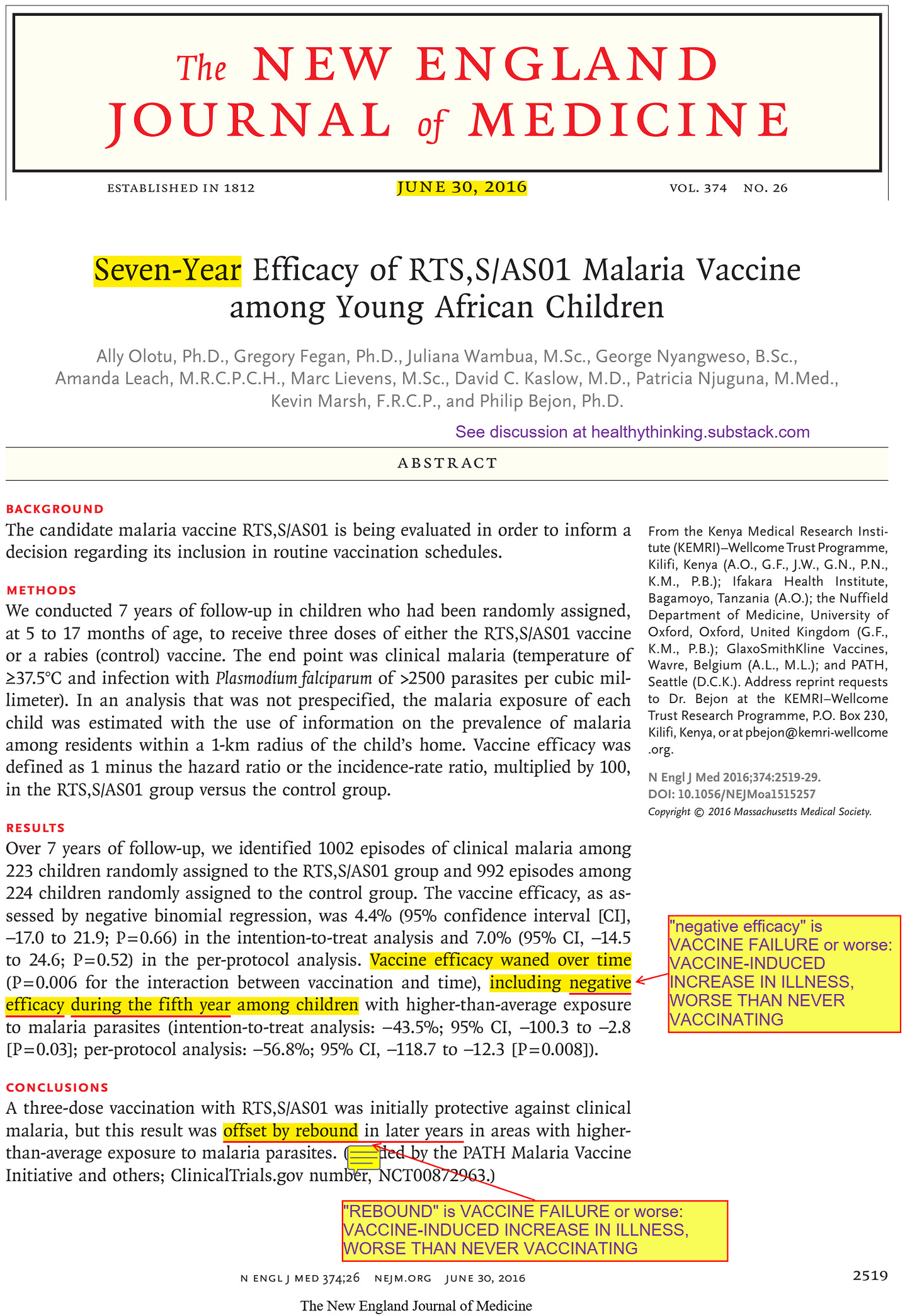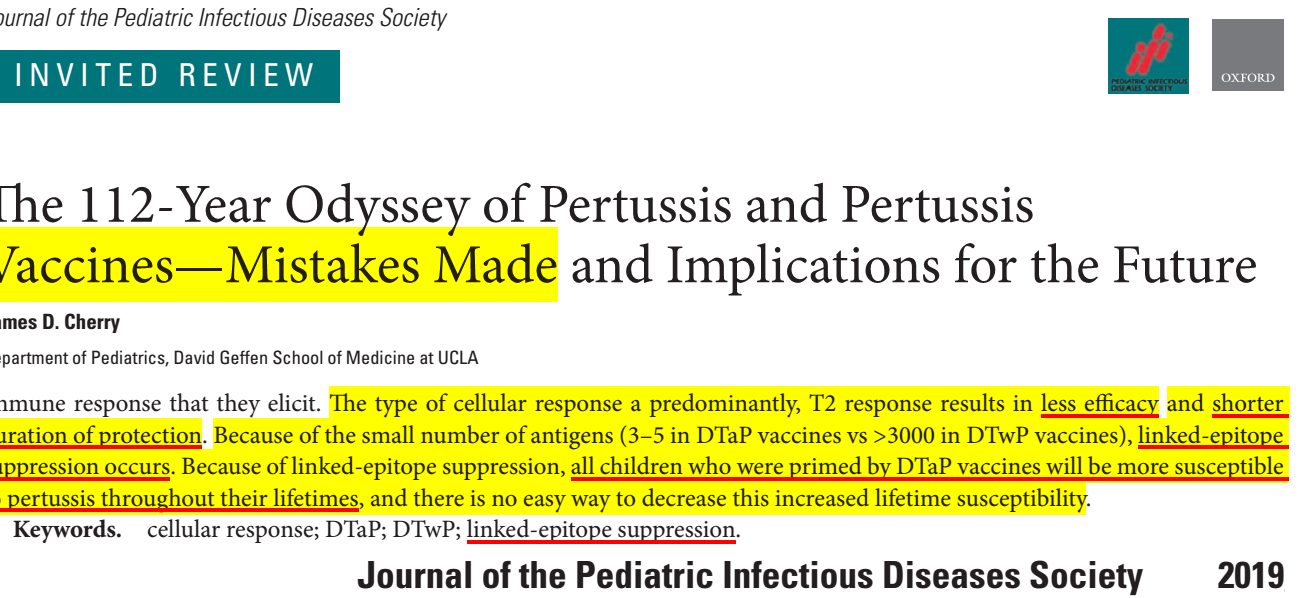Vaccine studies need at least 5-7 years, according to NEJM 2016
Evidence of people becoming more vulnerable to infection following vaccination—just like we have already noted with the pertussis vaccines.
The real science shows us that we need at least 5-7 years to determine the real-world safety and effectiveness of vaccines, because an initially positive/beneficial effect might be offset by a negative/harmful effect later, as demonstrated in the study “Seven-Year Efficacy of RTS,S/AS01 Malaria Vaccine among Young African Children” N Engl J Med 2016; 374:2519-2529 10.1056/NEJMoa1515257
“Negative efficacy” and “rebound” are vaccine failure so bad that it is actually worse than never getting vaccinated in the first place; it is worse than “neutral” which would be no benefit but is actually evidence of people becoming more vulnerable to infection following vaccination—just like we have already noted with the pertussis vaccines.
MEDICAL TERMINOLOGY 5) LINKED EPITOPE SUPPRESSION, a mechanism of Vaccine Failure per Journal of the Pediatric Infectious Diseases Society 2019
·
Is linked epitope suppression the explanation for the consistent paradox that “more injections = more infections” as reported in European Journal of Epidemiology 2021Sep, Lancet Regional Health Europe 2021Dec, Newsweek 2021Nov? INTRODUCTION: LINKED EPITOPE SUPPRESSION is a complex concept and takes a bit of effort to grasp; in this context, I am describi…





